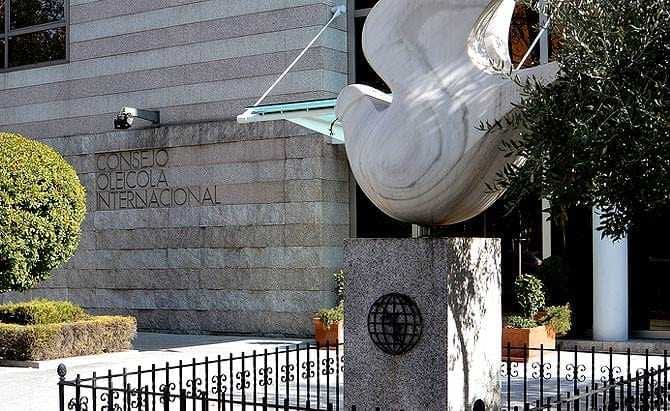
The International Olive Council has praised the United States International Trade Commission (USITC) for the effort behind its report on competition in the global olive oil trade but laments that “opinions as opposed to facts” are at times conveyed in it.
At times, the opinions and information reported may not be sufficiently objective, corroborated or consistent
In its first public comment on the USITC document since its September 12 release, the IOC said the commission had “gone to great lengths to investigate the intricacies of the olive oil market” and it “greatly applauds this endeavor and acknowledges the difficulty of such a task.”
But the Executive Secretariat of the Madrid-based intergovernmental body went on to say that enquiries had been conducted in many countries and organizations “which often have dissimilar and diverging interests.”
“At times, the opinions and information reported may not be sufficiently objective, corroborated or consistent, but in no way does this detract from the efforts of the USITC; simply, on such occasions, opinions as opposed to facts are conveyed,” the IOC said.
In its statement, titled “Recently released USITC report highlights central role of IOC in olive oil world,” the IOC also said it appreciated “the acknowledgment of its role as a world olive oil forum and its position as an authority in areas such as olive products standardization,” and noted the USITC report referred to the IOC more than 300 times.
Concerns about current IOC standards
Among the main findings in the USITC report were that current international standards allow a wide range of olive oils to be marketed as extra virgin, that the standards are widely unenforced, and that this leads to adulterated and mislabeled products that weaken the competitiveness of U.S.-produced olive oil in the U.S. market.
Titled “Olive Oil: Conditions of Competition between U.S. and Major Foreign Supplier Industries,” the 282-page report said a growing segment of the global olive oil industry had expressed concerns about current IOC standards for olive oil, particularly those for extra virgin.
“Many industry officials claim that by setting standards for extra virgin that are easily met, the IOC is favoring the interests of its Mediterranean members that are the primary suppliers of lower-quality extra virgin olive oil in the global market instead of the interests of consumers,” the report found.
Among other issues raised were that chemical tests in the IOC quality standards are not definitive in determining the age of an olive oil, which can be an indicator of freshness. “Olive oil producers in the United States and Australia report frustration over the IOC’s reluctance to consider what they view as the most advanced chemical tests available for this purpose,” the report said.
“Despite its 17-country membership, the IOC agenda is largely set by EU countries with large production and exports, particularly Spain and Italy,” it also said.
“Reportedly, large multinational olive oil blenders/bottlers in those countries have been particularly active in influencing the activities of the organization through their official EU representatives.”
Why the U.S. won’t join the IOC
The IOC ended its statement with an invitation for all producer countries — “and all the consumer countries in the not too distant future” – to join the IOC.
Cooperation among all countries, and the alignment and fulfillment of standards, is of “key importance in the drive to enhance the quality and authenticity of the olive oils sold across the globe and to facilitate trading by precluding unfair competition,” it said.
But the USITC report said the U.S. government did not wish to become a member of the IOC, for “policy and financial reasons.” It said this information came from U.S. Department of State and U.S. Department of Agriculture officials.
“One issue is the standards developed by the IOC for grading olive oil. The United States views these standards as not representative of all global olive oil production due to the IOC’s weighted voting structure, which, according to U.S. government officials, keeps the IOC from currently being recognized as a standards-setting body by the World Trade Organization (WTO),” USITC reported.
“The U.S. stance on IOC membership is also related to broader U.S. government policy on U.S. membership in international commodity organizations.”
“According to U.S. government officials, the U.S. government would like to curb U.S. membership in such groups; indeed, the trend over the last decade has been for the U.S. government to withdraw from them,” it said.
Separately, the USITC report said the IOC allocates 1,000 participation shares among its members based on their average olive oil production and exports in the past six years. The EU currently holds 684 shares and because the U.S. is a small producer it would likely receive the minimum 5 shares if it became an IOC member.
The U.S. does, however, have IOC observer status, which allows it to follow the technical work in IOC committees.
The IOC said in its statement that “is a neutral, intergovernmental institution which has always attended to the needs of all countries, whether they are member or non-member, producing or consuming.”
- “Recently released USITC report highlights central role of IOC in olive oil world”, International Olive Council, September 19, 2013
- USITC September 12, 2013, news release on its publication Olive Oil: Conditions of Competition between U.S. and Major Foreign Supplier Industries.
- “Trade Commission Releases Report on Year-Long Investigation into U.S. Olive Oil Competitiveness” Olive Oil Times, September 12, 2013







